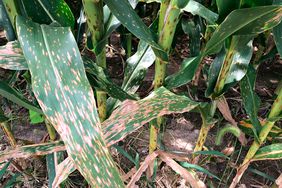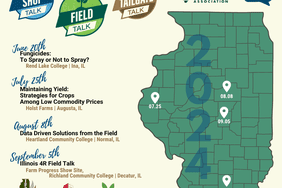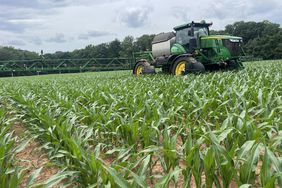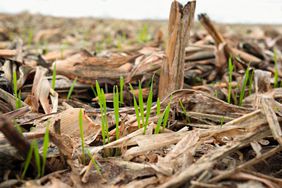:max_bytes(150000):strip_icc()/20230711_1027461-c5dd3af4ff94417190d2fd82e1eb8e95.jpg)
Ryan Heiniger/CTIC
This summer, an opportunity to learn about sustainable agriculture is coming to Arkansas with the 17th annual Conservation in Action Tour hosted by the Conservation Technology Information Center (CTIC). This is the first time the tour will make its way through Arkansas.
“The theme for this year is diversity in conservation,” says CTIC executive director Ryan Heiniger. “Participants will learn about the people and technologies that are instrumental in making conservation work.”
The event will kick off with dinner and networking on June 10 in Memphis at the Hyatt Centric hotel. On June 11, participants will tour the northeast region of Arkansas, learning from a full slate of presenters with three farm stops along the way.
“The tour attracts a range of people from across the industry including C-suite leaders, government agencies, farmers, agronomists, universities, and conservation non-profits,” says Heiniger. “The farm stops are the heart and soul, but this is also a great networking opportunity to compare ideas and share program opportunities.”
Scott Matthews farms in western Poinsett County in Arkansas and will be sharing a deep dive into smart irrigation systems in rice. He raises rice and soybeans in a critical groundwater area. “We saw the reduction in the aquifer and the restrictions that will probably be put in place coming a long time ago,” says Matthews. “We had to learn to utilize the water we had and not waste it to farm the crops we want to grow.”
Matthews explains that historically, rice uses 30 to 38 inches of water in a season. On his farm, Matthews manages water through several systems, including deep wells, reservoirs, surface water recovery systems, and tailwater pit recovery systems.
“I actually wear the wet off my water. We want to be good stewards with our water,” he says. “If I’ve done my job in conservation irrigation, I need to be well south of 30 inches.” With his management, last year he successfully grew his crop with only 16 inches of water.
Other stops on the tour include Ellis Bell Farm in Forrest City Arkansas, and Travis Senter and Chase Chafin in Osceola. Early bird registration is $300. After May 12, registration increases to $350. There is a 50% discount off registration for farmers to attend. For more information or to register, visitctic.org/tour.
:max_bytes(150000):strip_icc()/AdrienneHeld4x5crop-a7e3515671bc41c28273a85982f2c67e.jpg)










